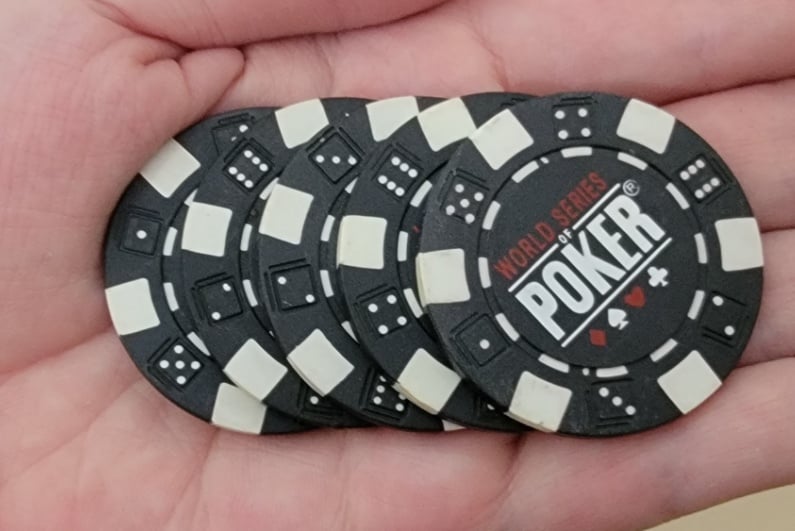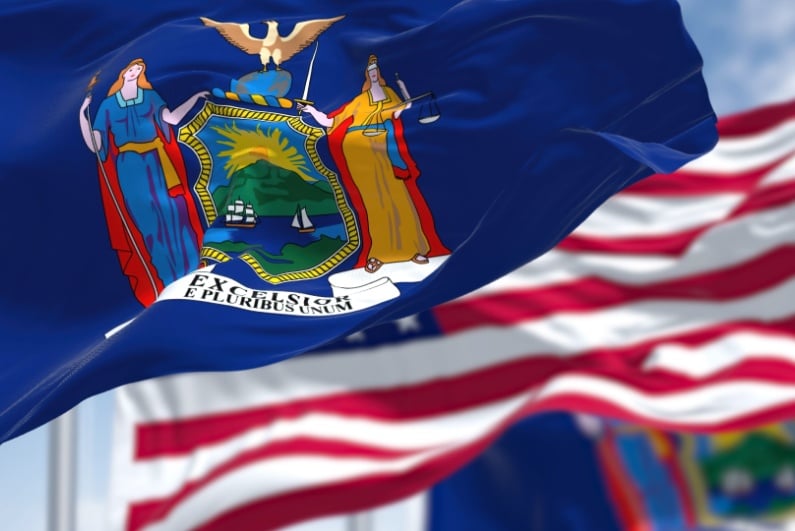Prominent Poker player Gordon Vayo is suing online poker cardroom PokerStars over frozen prize money.
Gordon Vayo, a professional poker player from California, has filed a lawsuit against Rational Entertainment Enterprises Limited (REEL), the parent company of global online-poker giant PokerStars, over frozen winnings earned by Vayo during the 2017 SCOOP (Spring Championship of Online Poker) series.
Vayo, 30, seeks the winnings from his first-place finish in Event #1-High of the 2017 SCOOP series, which occurred in late May of 2017. Vayo won the massive event, which drew over 5,600 entrants and generated a prize pool of roughly US$5.6m (roughly £4.12m). Vayo earned a prize of $692,460.93 (£509,492) following a four-way deal at the online event’s final table.
However, according to the lawsuit filed May 2 in the US District Court for the Central District of California, PokerStars froze Vayo’s winnings and refused to pay out the balance of Vayo’s online balance after declaring that Vayo had not proven to PokerStars’ satisfaction that he wasn’t somehow playing from the US during the event, via a VPN (virtual private network). PokerStars’ terms of service forbid players from the US and other “prohibited jurisdictions” from connecting to the giant online site by masking their location via an intermediate VPN connection.
VPN issue complex
Vayo’s lawsuit will likely bring into the spotlight the practice of PokerStars and other major online sites of allowing American citizens to establish semi-permanent residences in other countries, and play on these sites when not physically within the United States. The vast majority of major international operators have blocked Americans from their sites. Most of those operators began blocking US online gamblers in late 2006, following the passage of the US’s Unlawful Internet Gambling Enforcement Act (UIGEA). The largest of those who remained after 2006, including PokerStars, were forced from the US market by that country’s April 2011 “Black Friday” legal crackdown.
However, somewhere between many hundred and a few thousand of the US’s full-time online poker players set up residences in other countries after the Black Friday crackdown, almost always to continue playing on PokerStars, the runaway global market leader. Stars allowed these many players, including Vayo, to resume playing on the site after providing proof of the new residence outside the US. Popular destinations for the US poker expats include Canada, Mexico, Costa Rica, the Philippines, Columbia, and several Western European countries.
Vayo, who is best known for finishing as the runner-up in the 2016 WSOP Main Event, established such work-related residencies in Canada and Mexico and played on Stars from those locations for several years. However, as detailed in the lawsuit, PokerStars challenged Vayo to prove that he was actually playing from Canada (as his computer connection indicated) when he took down the nearly $700K payday in the online event.
Within the complaint, a copy of which has been obtained by VSO, Vayo asserts that he provided sufficient evidence that he was in Canada when playing the event, and not using a VPN connection routed through Canada to hide alleged play from California or elsewhere within the US. Vayo’s account was frozen by PokerStars roughly two months after the big online win, which resulted in several months of exchanges before the account was permanently suspended and Vayo obtained legal counsel.
The VPN issue is vital to the case. Though PokerStars and other major “white label” sites have allowed Americans to rejoin the action by moving to other countries, a black-market economy offering VPN connectivity to Stars from other countries has also emerged. Several more thousands of US-based players are believed to have used these intermediary services to connect to Stars and other sites while actually playing from within the US. Entities advertising such services from locales such as Toronto and Montreal are advertised freely on the Internet, despite the closing of accounts and forfeiture of funds when such illicit play is uncovered.
Vayo’s VPN “malfunction”
In the suit, Vayo himself admits to using a VPN, which also has legitimate purposes. However, the complaint asserts, he never used the VPN to play on PokerStars while he was within the US, though a VPN “malfunction” on his computer may have caused a connection to PokerStars’ servers during several periods in 2017.
PokerStars’ version seemingly differs. From the complaint: “On November 14, 2017, Defendant [PokerStars] responded by letter from outside counsel, attaching a chart listing 54 alleged connections by Mr. Vayo originating from within the U.S. All but nine (9) of the alleged connections were between March 24 and May 18, 2017, with the remainder occurring in late July 2017.” PokerStars also alleged that Vayo had played “56,000 tournament hands” from the US during this period, including the SCOOP event.
Vayo and his counsel heatedly deny the PokerStars accusation, noting that the date supplied by PokerStars didn’t even include days the SCOOP event ran and that Vayo played only 8,000 hands in total on that computer during the alleged timespan.
“Fraudulent conduct” alleged
Perhaps the harshest ammo fired at PokerStars is the allegation within Vayo’s lawsuit that PokerStars only conducts thorough investigations of possible US-based play after a major win by a US expat player, rather than continually monitoring connectivity during play and conducting proper KYC (Know Your Customer) checks during account creation or reactivation.
Such a practice, as poker writer Steve Ruddock noted in social-media discussion about the lawsuit, could be perceived as a ban on major wins and cashouts rather than an actual ban on play from banned countries.
From Vayo’s lawsuit:
Defendant’s Pattern of Fraudulent Conduct
62. Mr. Vayo is informed and believes, and on this basis alleges, that Defendant have engaged and are engaging in a pattern and practice of conduct intended to defraud users of the PokerStars site.
63. In particular, Defendant engages in a practice of routinely approving PokerStars users’ accounts for play outside of the U.S. upon submission of documentation that Defendant in its sole discretion deem adequate.
64. Defendant then encourages such users to play on the PokerStars site, turning a blind eye and reaping huge profits while PokerStars users spend their money playing on the site.
65. On information and belief, Defendant regularly employs no procedures or methods to check whether users of the site are accessing the site from within the U.S. or outside the U.S.
66. However, when a user wins a large amount of money on the PokerStars site, Defendant opens an investigation of the winner’s account. Only then does Defendant employ procedures or methods by which it allegedly checks the jurisdiction from which the PokerStars user has accessed his or her account.
67. In this way, Defendant uses the prohibition on online poker under U.S. law as a whipsaw to maximize its profits, while denying large payouts to players by demanding that they retroactively prove their whereabouts – potentially over a period of several years – on pain of forfeiting their winnings. …
Manx law and trebled damages
The lawsuit includes several other damning accusations, such as that PokerStars’ parent REEL’s incorporation within the Isle of Man is designed to block litigation from outside jurisdictions in addition to enjoying the IOM’s tax-haven corporate benefits.
As the lawsuit asserts: “In this way, Defendant purports to shield itself from any practical or realistic possibility of being sued – thus allowing Defendant to violate its own Terms of Service with impunity against any PokerStars user that does not have the means or wherewithal to file and litigate a lawsuit on the Isle of Man.”
The lawsuit seeks to have PokerStars’ TOS declared null and void. The suit lists eight separate causes of action, including fraud and deceit, false advertising, violation of right of publicity, breach of written contract, money had and received, and promissory estoppel. One of the false advertising claims invokes the US’s Lanham Act, which allows for trebled damages on the actual $690,000 (£507,681) loss claimed by Vayo, while other claims allow for additional punitive and compensatory awards.




